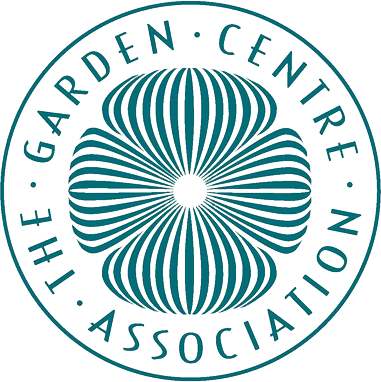How Gardening Reduces our Stress & Anxiety
May 7th, 2024 | Categories
In the hustle and bustle and pressures of modern life, with persistent digital screens and concrete jungles, it’s no wonder general stress and anxiety levels have increased significantly among us all. In fact, according to a 2024 “Burnout Report” by Mental Health UK, 9 in 10 adults surveyed “experiencing high or extreme stress” in the last 12 months, and 1 in 5 needing to take time off due to “poor mental health caused by pressure or stress”.
As a counter, doctors are prescribing more nature, and gardening to patients rather than medication. Humans evolved in nature after all and so have this deep-rooted connection to the earth, but today’s pressures keep us from truly connecting with it as much as we need.
Gardening, however, might be just the thing. Getting the typical jobs of gardening done, as well as relaxing in our gardens can give us that connection to nature; being outside, hearing the birds, caring for flowers that feed bees and butterflies, will actually reduce stress and anxiety levels according to various studies including a 2021 report from the Mental Health Foundation. Read on to find out just how.

Digging Deeper into the Stress Reduction Benefits
Stress, a common ailment of the modern world, is often called the silent killer for the myriad of physical and mental ills it fosters. However, researchers and health professionals are increasingly advocating for gardening as a powerful stressbuster. The simple process of digging in soil can alleviate stress levels significantly. This is not just an anecdotal observation; numerous studies have shown that activities such as gardening can lower cortisol – the stress hormone – in our bodies.

Additionally, the act of tending to plants and being grounded in the earth is a soothing balm for a restless mind. It engages all our senses – the smell of fresh soil, the touch of plant leaves, the sight of vibrant colours, and the chorus of bird songs – culminating in a therapeutic experience. This sensory engagement helps redirect focus from the churning fret of anxious thoughts to the present moment, gradually melting away the built-up tension.
The Scientific Zen of Weeding and Soil
When the world feels chaotic, the garden offers a sanctuary of calm. The repetitive tasks like weeding (yes, even weeding), raking, or mowing not only make your garden bloom but also enable a sense of rhythm and predictability that can be calming. These repetitive motions mimic the benefits of meditation and have a calming effect on the mind.
The gentle exercise of gardening, without the gym-like pressure of a workout, releases endorphins – our body’s natural feel-good chemicals. Being in the garden, enveloped in the scent and sounds of nature, can help foster a state of relaxation. Indeed, the connection to the earth, both literal and symbolic, profoundly grounds us in the moment. In literal scientific terms, gardening significantly raises levels of dopamine and endorphins, the “feel good” molecules in the brain.

The soil itself contains a bacterium called Mycobacterium vaccae, which is known to trigger the release of serotonin. Did you know that the mood stabilising effect of serotonin is something that prescribed anti-depressants seek to replicate? Indeed, it was famously said by British physician Sir Muir Gray that everyone needs a “Natural Health Service” as well as a National Health Service.
Cultivating Concentration and Mindfulness
In today’s world, with so much tugging at our attention, true focus is often disrupted and lost easily. Gardening involves many simple, but often many intricate tasks – from planning your beds and borders, to carefully nurturing and feeding plants – that in turn provide a series of goals to achieve, creating a sense of accomplishment and satisfaction. The rhythmic aspects of gardening can lead to a highly focused state of mind. It’s a powerful way to disconnect from the digital noise and hone the skill of concentration that carries through to other areas of your life.

Gardening is like exercise in that takes over your mind and attention, in a positive way! When you’re pruning a rose bush or carefully transplanting seedlings, stray thoughts seem to just melt away into the background to focus on the task at hand.
Indeed, researchers from The Royal Horticultural Society have found evidence that spending time in the garden can improve attention spans and memory generally in addition to lowering stress levels. Double win!
How Gardening also Enhances our Emotional Well-being
Stress and anxiety sap positivity and create a bit of a vicious circle. Gardening has the wonderful ability to break us free of this and colour our emotional palette with positivity. The physical fruits of our labour are emotionally rewarding, whether it’s the first bloom of a flower, the freshly harvested tomato from your vine, or the serene greenery of your outdoor living space. These visible rewards act as a tangible affirmation of your efforts and have a deep impact on mood and self-esteem.
Moreover, the natural world is an extraordinary mood elevator. Sunlight gives us Vitamin D, which in turn, is linked to increased levels of serotonin (that good stuff we mentioned earlier), which contribute to feelings of positivity, energy, and hope. All great for our well-being. The emotional connection to our garden space goes beyond the physiological; it’s also deeply psychological. Gardening provides a break from the routine and offers a creative outlet.

Prescribe More Gardening to Yourself
Gardening is an amazing activity that holds the potential to help transform our wellbeing. It provides us with a tangible connection to the earth and is much easier to jump into – with much of the same benefits – than getting in the car and heading to the nearest national park. It also offers a space for personal reflection, growth, and renewal, which is hard to come by in today’s fast paced world. The benefits of gardening are many and profound, touching on all aspects of our physical, mental, and emotional health. With all these amazing benefits we think it’s time to prescribe more time in our gardens. What do you think? Can you spend some more time in the garden with your other weekly activities?






